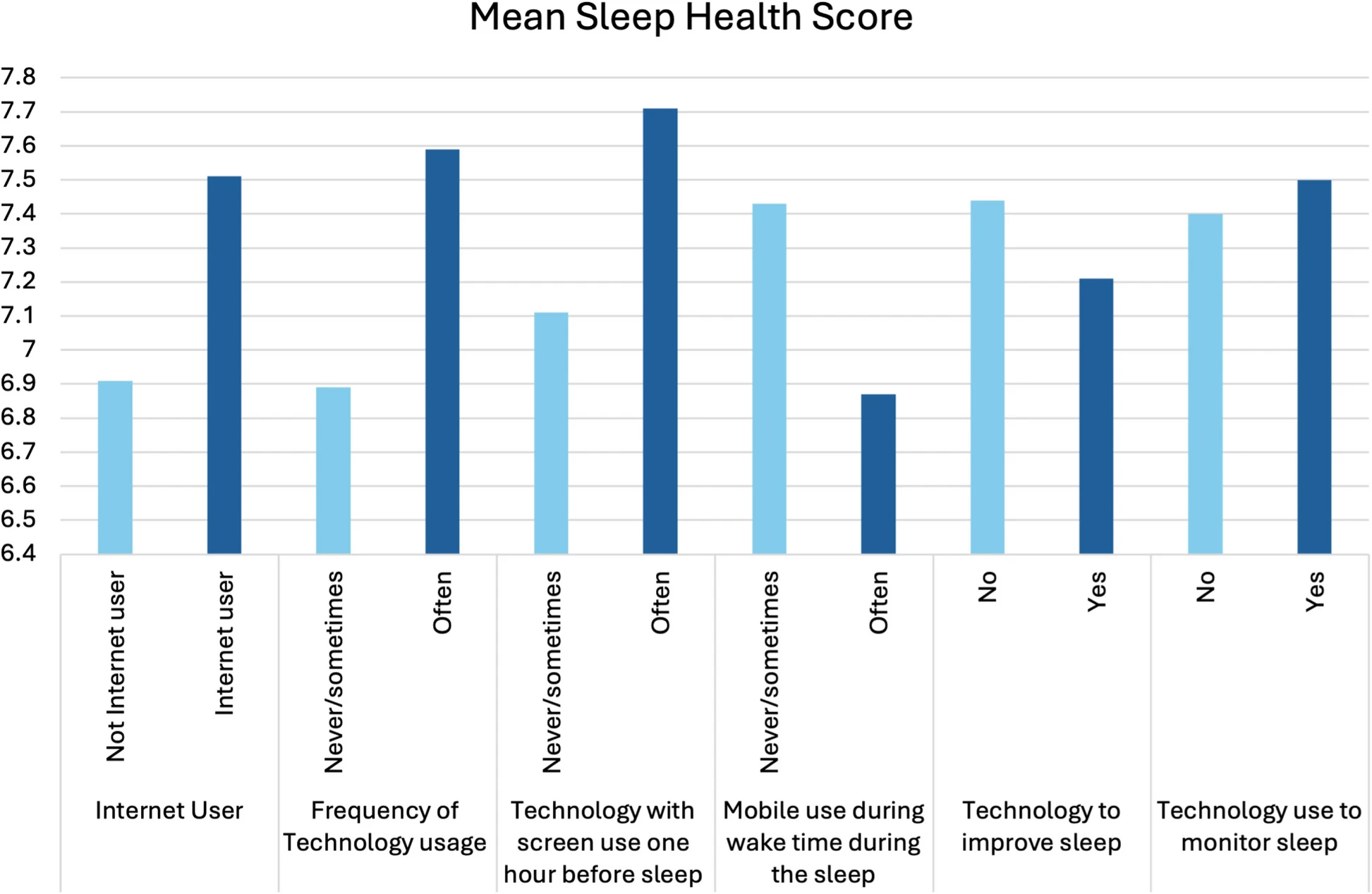
Examining sleep health and its associations with technology use among older adults in Sweden: insights from a population-based study
- Post by: Alper Idrisoglu
- 22 August, 2025
- No Comment
Abstract
Introduction
Exploring the association between technology use and sleep health in older adults is important as digital engagement becomes integrated into society.
Objective
This study aimed to examine sleep health and its association with technology use in a population-based cohort of 60 years and older.
Methods
This cross-sectional, population-based study (2023) included 436 older adults from the Swedish National Study on Aging and Care, Blekinge (SNAC-B) population. These participants were sent questionnaires about their sleep, internet usage, Digital Social Participation (DSP), Technology Anxiety (TA), Technology Enthusiasm (TE), and use of information and communication technology. We used a multidimensional instrument, SATED, to measure sleep health. In this study, we conducted statistical analyses using the chi2 test, T-test, Pearson correlation, and backward linear and logistic regression.
Results
Our study found that older adults (60 years+) have a mean sleep health score of 7.40 (SD = 2.03). TE (, ) and DSP (, ) were positively associated with better sleep health, while TA (, ) was negatively associated. Frequent internet users(M = 7.6) and engaging with screens before bedtime (M = 7.7) had higher sleep health scores compared to non-frequent users (M = 6.90, ) and none or seldom engagement with screens before bedtime (M = 7.10, ) respectively. Linear regression showed TE positively associated ( = 0.241, ) while TA negatively associated ( = -0.220, ) with sleep health. DSP was found to be a predictor of better satisfaction (OR: 1.32, ), efficiency (OR: 1.16, ), and duration of sleep (OR:1.16, ). Lower TA predicted better satisfaction (OR: 0.81, ), timing (OR: 0.74, ), and efficiency (OR:0.78, ) of sleep. Older adults who use technology one hour before sleep have better sleep timing (OR: 3.003, ), while those who do use mobile phones with a screen during the awake period after sleep onset have poor sleep timing (OR:0.016, ).
Conclusions
DSP and TE support better sleep health, while TA negatively impacts sleep satisfaction, timing, and efficiency. Encouraging positive digital engagement and minimizing technology-related stress may promote healthier sleep in older adults.
DOI:https://doi.org/10.1186/s12889-025-23894-8
